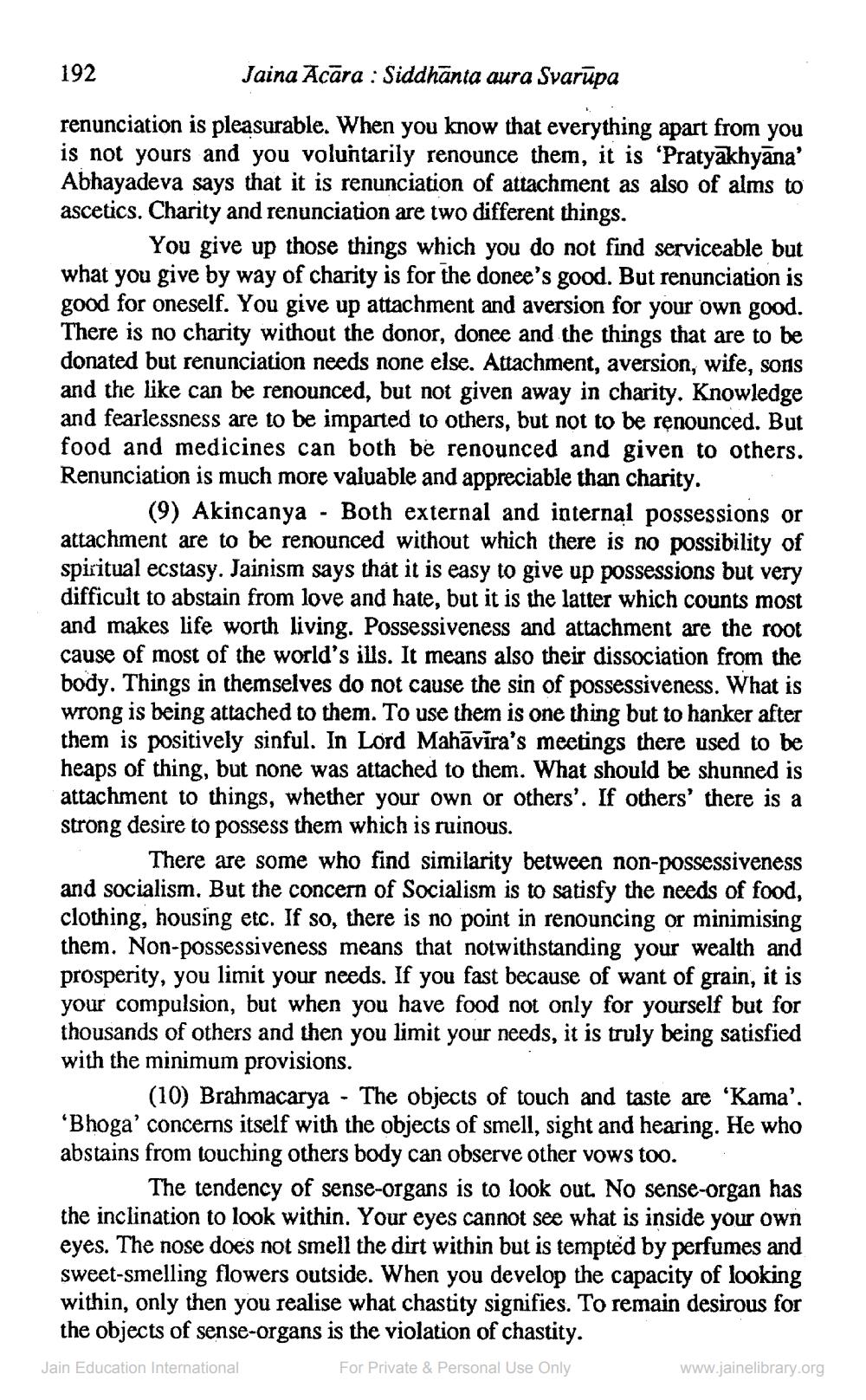________________
192
Jaina Acāra : Siddhanta aura Svarūpa
renunciation is pleasurable. When you know that everything apart from you is not yours and you voluntarily renounce them, it is 'Pratyākhyāna' Abhayadeva says that it is renunciation of attachment as also of aims to ascetics. Charity and renunciation are two different things.
You give up those things which you do not find serviceable but what you give by way of charity is for the donee's good. But renunciation is good for oneself. You give up attachment and aversion for your own good. There is no charity without the donor, donee and the things that are to be donated but renunciation needs none else. Attachment, aversion, wife, sons and the like can be renounced, but not given away in charity. Knowledge and fearlessness are to be imparted to others, but not to be renounced. But food and medicines can both be renounced and given to others. Renunciation is much more valuable and appreciable than charity.
(9) Akincanya - Both external and internal possessions or attachment are to be renounced without which there is no possibility of spiritual ecstasy. Jainism says that it is easy to give up possessions but very difficult to abstain from love and hate, but it is the latter which counts most and makes life worth living. Possessiveness and attachment are the root cause of most of the world's ills. It means also their dissociation from the body. Things in themselves do not cause the sin of possessiveness. What is wrong is being attached to them. To use them is one thing but to hanker after them is positively sinful. In Lord Mahāvīra's meetings there used to be heaps of thing, but none was attached to them. What should be shunned is attachment to things, whether your own or others'. If others' there is a strong desire to possess them which is ruinous.
There are some who find similarity between non-possessiveness and socialism. But the concern of Socialism is to satisfy the needs of food, clothing, housing etc. If so, there is no point in renouncing or minimising them. Non-possessiveness means that notwithstanding your wealth and prosperity, you limit your needs. If you fast because of want of grain, it is your compulsion, but when you have food not only for yourself but for thousands of others and then you limit your needs, it is truly being satisfied with the minimum provisions.
(10) Brahmacarya - The objects of touch and taste are 'Kama'. ‘Bhoga' concerns itself with the objects of smell, sight and hearing. He who abstains from touching others body can observe other vows too.
The tendency of sense-organs is to look out. No sense-organ has the inclination to look within. Your eyes cannot see what is inside your own eyes. The nose does not smell the dirt within but is tempted by perfumes and sweet-smelling flowers outside. When you develop the capacity of looking within, only then you realise what chastity signifies. To remain desirous for
the objects of sense-organs is the violation of chastity. Jain Education International For Private & Personal Use Only
www.jainelibrary.org




